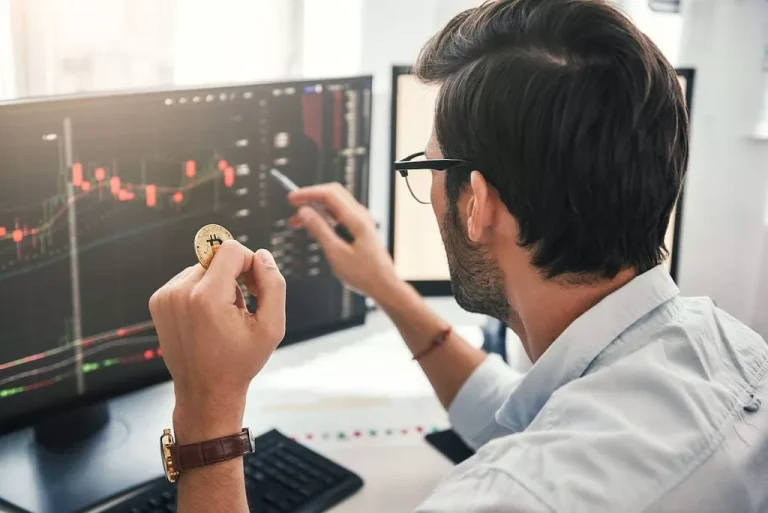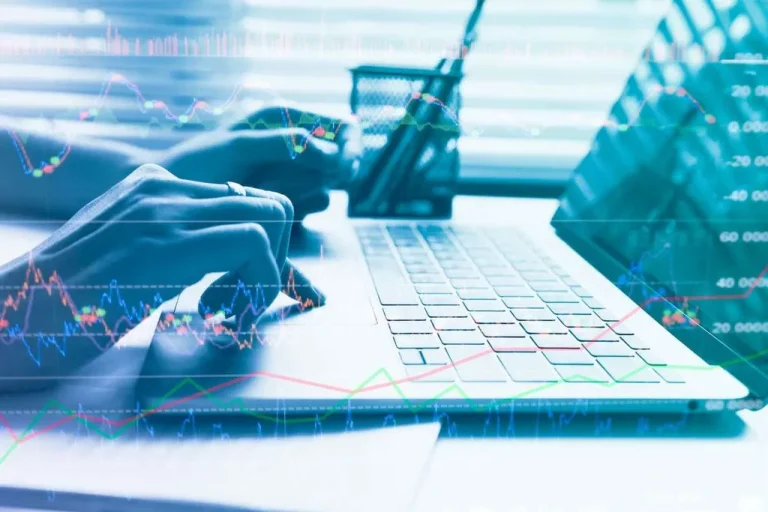Content
This craft is nearly gone, back in the old days that was the job description of a broker, but nowadays it’s just private companies that operate using electronic platforms. In the end, we may say that there are a number of ways that a broker adopts to brokers payment system make money and pay their clients. Usually, mortgage broker fees paid by a lender when the loan has closed. The scoring formulas take into account multiple data points for each financial product and service.

NerdWallet’s Best Brokerage Accounts for Online Stock Trading
Commissions are typically applied to accounts that offer lower spreads or higher leverage. The commission fee is usually a fixed amount per lot traded, and it varies from broker to broker. One of the primary ways forex brokers make money Digital asset is through the spread.
How Forex Brokers Manage Their Risk and Make Money
Discover how to increase your chances of trading success, with data gleaned from over 100,00 IG accounts. Knowing how your broker makes money its important because it will help you behave the best way possible when dealing with them. Basically we could say that the ECN broker is a DMA broker connected to a super huge global network linking all market participants and matching trading orders. One very important thing to remember, being a regular market maker is not the same as being a CFD market maker, they are very different. Normally people don’t have https://www.xcritical.com/ a clue about this and how it works, so if you want to understand whether your broker is fooling you or not, read on. Hopefully, it is enough for you to understand the possible ways of making money that a broker adopts.
Do forex brokers make money from offering leverage to traders?
But only if the broker chose to not send the exposure they had into the real market. When brokers do send the exposure (risk) they have into the real market or to another broker, the process is called hedging, it’s how brokers protect themselves. Electronic Communications Network Brokers have a NO-Dealing Desk model. The moment they receive an order it gets sent into a massive network (the ECN) where several market participants are linked and compete for buying and selling. We know this is going to sound tricky, but be careful with STP brokers.
- It’s important for traders to understand how their brokers make money so they can make informed decisions about their trading.
- A retail forex broker trades on its own account by taking the opposite side of its customers’ trades.
- After shifting over to leveraged crypto trading in derivatives and futures contracts he has become an influential figure in the cryptocurrency industry.
- Technically, any forex broker has the potential to manipulate prices as a strategy to generate profits.
- Brokerage firms play a crucial role in the financial markets, acting as intermediaries between investors and the exchanges where securities are traded.
Its articles, interactive tools and other content are provided to you for free, as self-help tools and for informational purposes only. NerdWallet does not and cannot guarantee the accuracy or applicability of any information in regard to your individual circumstances. Examples are hypothetical, and we encourage you to seek personalized advice from qualified professionals regarding specific investment issues. Our estimates are based on past market performance, and past performance is not a guarantee of future performance. In theory, the broker could stop accepting the trades if it didn’t want to expose itself to such risk but then that would mean that all of its customers couldn’t enter into any more trades.
If you didn’t notice, Spider-Man magically created a 100,000 unit position size and required just $200 of “margin”. Either you or the broker will have to pay the difference depending on who ends up wrong. I don’t trust dudes who wear tight black suits with capes so I’ll use your $20 as collateral to cover the initial risk if the price falls and moves against you. The broker has a short position against Elsa’s trade but also has a long position against Ariel’s trade. The same thing happens if you want to sell or “go short”, the broker will take the opposite side of your trade and buy from you or “go long”. This means that if you want to buy or “go long”, the broker will take the opposite side of your trade and sell to you or “go short”.

In this perfect world (for the broker, not for you), they are earning more in quality and quantity—higher fees all around from more traders placing forex trades through their platform. For example, a forex platform may offer a suite of free services to traders (that is, you). Then the platform may also offer a “VIP” or “upgraded” suite of services that you can gain access to with payment of an additional optional fee. Yet another way that NDD forex brokers can make money is through your use of the trading platform itself. You also need to know how forex brokers make money and which income streams are industry-standard versus extras you may or may not want to contribute to.
There weren’t any other traders who wanted to short GBP/USD so the broker wasn’t able to offset any positions to help reduce his net short position. Let’s see how Elsa’s and Ariel’s trades affect the broker’s trading book. Remember, the broker is the sole counterparty to all its customers’ trades. When you initiate a trade with your broker, both you (the trader) and the broker are exposed to market risk. That said, even though there is NOT a fiduciary relationship with the customer, the forex broker should act honestly and fairly with all of its customers.
The spread is the difference between the buying price (bid) and the selling price (ask) of a currency pair. When you trade forex, you will notice that the broker quotes two prices for each currency pair. The bid price is the price at which the broker is willing to buy the currency from you, while the ask price is the price at which the broker is willing to sell the currency to you. Forex trading has gained immense popularity in recent years, with millions of traders participating in the market every day. As the largest financial market in the world, forex offers traders the opportunity to profit from fluctuations in the value of different currencies. In this comprehensive guide, we will explore the various ways forex brokers generate revenue.
So, forex brokers primarily earn money through the levying of trading fees and non-trading fees. Trading fees are imposed on each transaction made by investors on the platforms, while non-trading fees usually come in the form of charges for services such as withdrawals or account inactivity. Some forex brokers charge a commission on each trade in addition to the spread.
So that you may get asses at large profitable trading instruments, such as trading signals, deep market info, and professional market research. However, there are some brokers who charge a processing fee from you. Payment processing commissions are deducted from your account when you deposit or withdraw money. Many brokers will charge you a fixed commission or a fee per trade, besides spreads. Especially, this is adopted by ECN (Electronic Communication Network) brokers like ICMarkets.
You just have an account with them and use them as the service provider to trade.Think of it as a trade on a selling website (like gumtree, craigslist or ebay). Meaning you don’t get paid by the middleman, but by the trader on the opposite side of the trade.I hope this explains it. You know that you have two main types of brokers – Dealing Desk (DD) brokers and Non-Dealing Desk (NDD, for short) brokers, right? So, when you lose they profit and vice versa.In this case, the broker will pay you your winnings.
NFA Compliance Rule 2-36(b)(4) prohibits an FDM from engaging in any manipulative acts or practices regarding the price of any foreign currency or forex transaction. Also, NFA Compliance Rule 2-36© requires an FDM to observe high standards of commercial honor and just and equitable principles of trade in the conduct of its forex business. NFA’s Board of Directors (Board) adopted these provisions to ensure that an FDM acts honestly, fairly and in the best interests of its customers.
